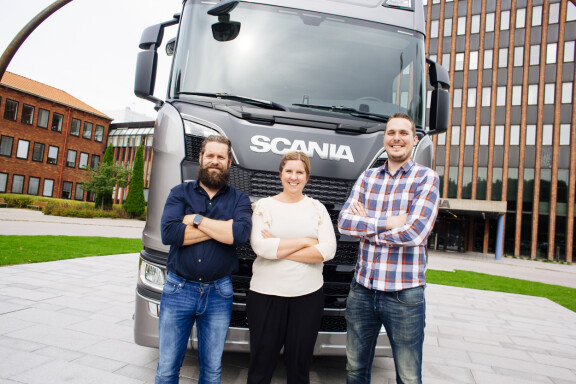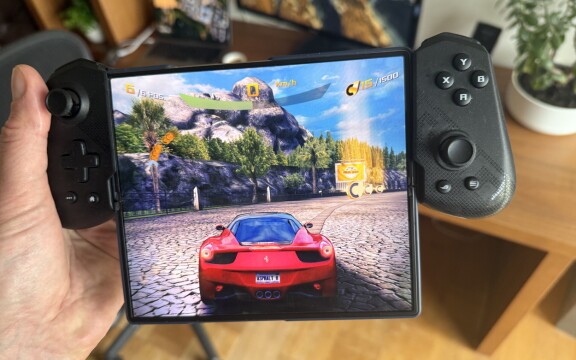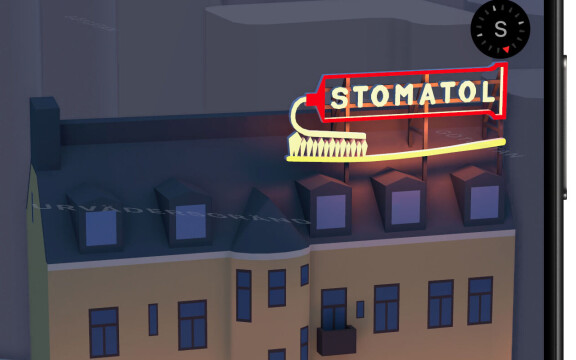-
PLUS
8 smarta tips för Google Foto – Ta kontroll över bilderna i påsk
-
PLUS
Krönika: Nej AI, jag vill inte vara din kompis eller partner
-
PLUS
Kommentar: Hindren som stoppar Tre
-
PLUS
Tips: 8 knep till Googles anteckningsapp Keep
-
PLUS
Apple Intelligence påminner mig om något betydligt bättre
-
PLUS
Mobils stora guide till Apple Intelligence i Iphone
-
PLUS
Krönika: Mobiltillverkare för första gången, igen
-
PLUS
11 tips: Google-appen som kan mycket mer än du tror
-
PLUS
Krönika: Google är bra på gratis men usla på att ta betalt
-
PLUS
Så kan Xiaomi-telefonen bli Mac-datorns och Iphones bästa vän
Scania
Connected vehicles in focus as Scania shifts up a gear

As Scania transitions from being a traditional truck manufacturer to a complete supplier of sustainable transport services, a brand new business model is being implemented that involves new agile working methods.
The starting shot has been fired. Scania’s work on offering transport as a service rather than a product is up and running. This requires a new approach to work, with a focus on flexibility and efficiency, with Scania investing in becoming Europe’s best agile organisation. With the help of agile leadership which reacts more quickly to events in the world around us, Scania can move from concept to finished product in a shorter time, as Johan Wallinder at Connected Services and Solutions explains:
“We have developed an IoT infrastructure for our connected vehicles, carried out big data analyses, created cross-functional teams with DevOps responsibility and introduced into production the new services in the cloud. That is the road ahead for us.”
In the future, Johan predicts that Scania will continue to be the market leader in connectivity and IT services for the transport industry.
“I believe that Scania will have Europe’s largest fleet of autonomous vehicles. We are on the same journey as a company as Spotify, King and Klarna have been, but we are approaching it as a transformation based on our product. In which case, it isn’t enough to compare ourselves with traditional truck manufacturers. We are facing new competitors who do not have roots in the automotive industry.”
Thinking creatively and outside the box
In order to meet future delivery requirements, Scania IT implemented a huge reorganisation earlier this year. The department has now moved from being simply technology-heavy to being focused on delivery. Now everyone within IT is working with a focus on delivering value for Scania.
“Everyone will have the freedom to develop new products and themselves. In addition to creating better deliveries, it also ensures that we think creatively and outside the box,” explains Karolina Hallbäcken, Connected Services IT.
In-house surveys show that team affinity is increasing, as employees come up with common solutions.
“We now have the right conditions for sharing knowledge, while also creating greater confidence and better dialogues within the teams.”
One person who has experienced the benefits of the agile approach to work is developer Martin Karlsson. When he started at Scania a year ago, he soon noted that the integration between Sales & Marketing and Scania IT within Connected Services resulted in greater focus on the end customer and the delivery.
“Here we share the responsibility of development work, which is based on stronger teams with broader knowledge. It also gives us the opportunity to deliver greater value at a faster pace. Thanks to the close cooperation between the business and IT, each employee has greater insight into the entire delivery process, right up to the end customer. In addition, it is fun, and it generates new approaches. Together we are more creative and customer-focused.”
Facts: Scania is one of the world’s leading manufacturers of trucks, buses and industrial and marine engines. A growing part of the business is its service offering, which guarantees Scania’s customers cost-effective and sustainable transport solutions. Scania IT is the Scania Group’s IT function, which works on everything from day-to-day operation to development of intelligent IT solutions. Scania IT employs 1,500 people around the world, with most working at the head office in Södertälje.
















